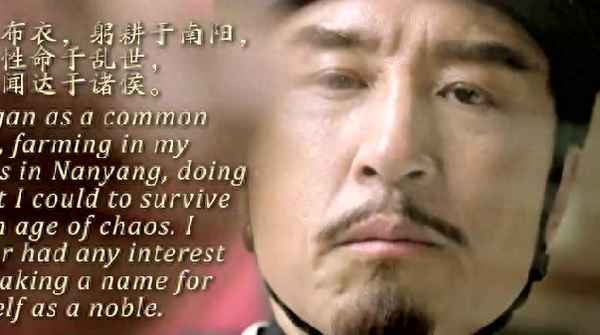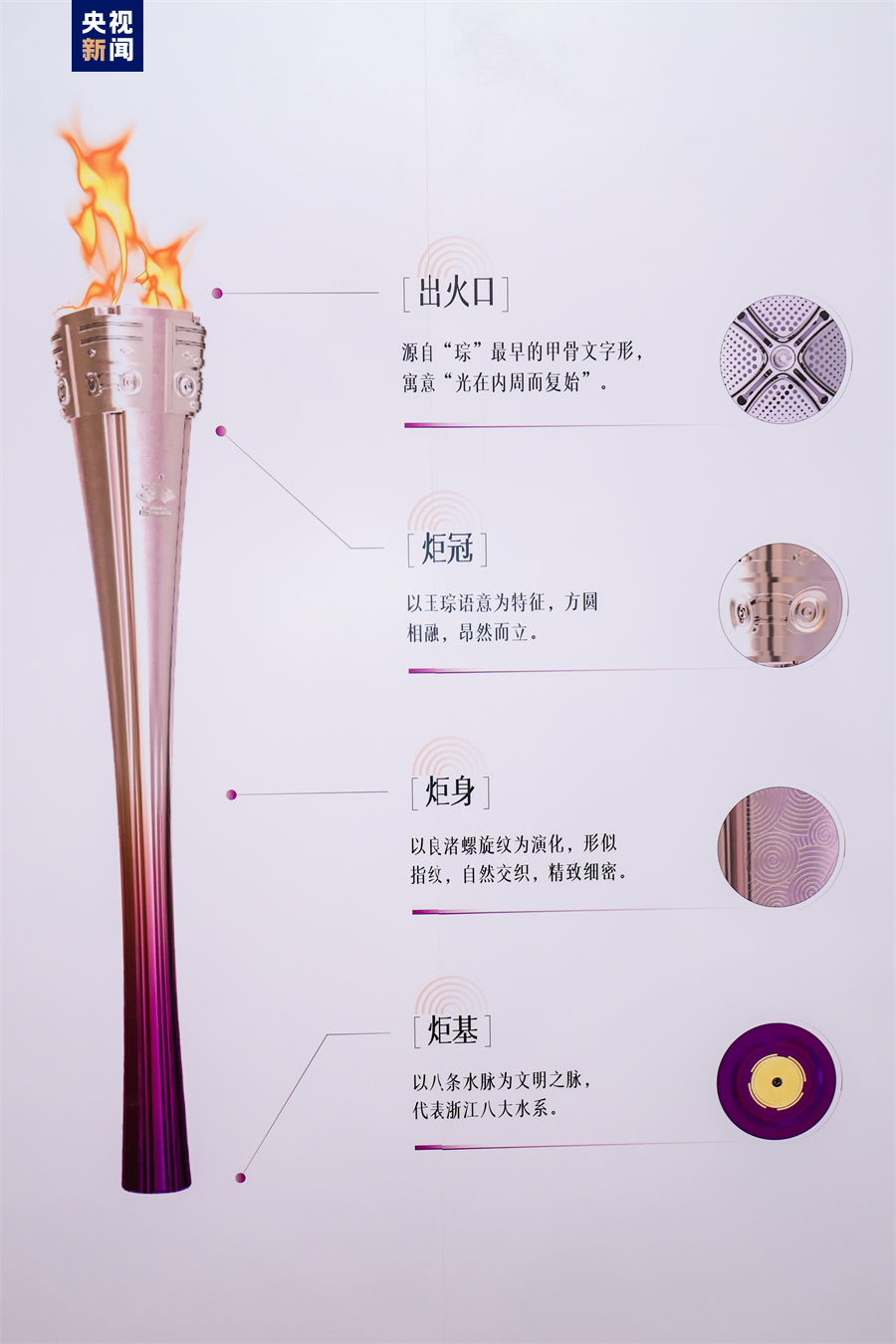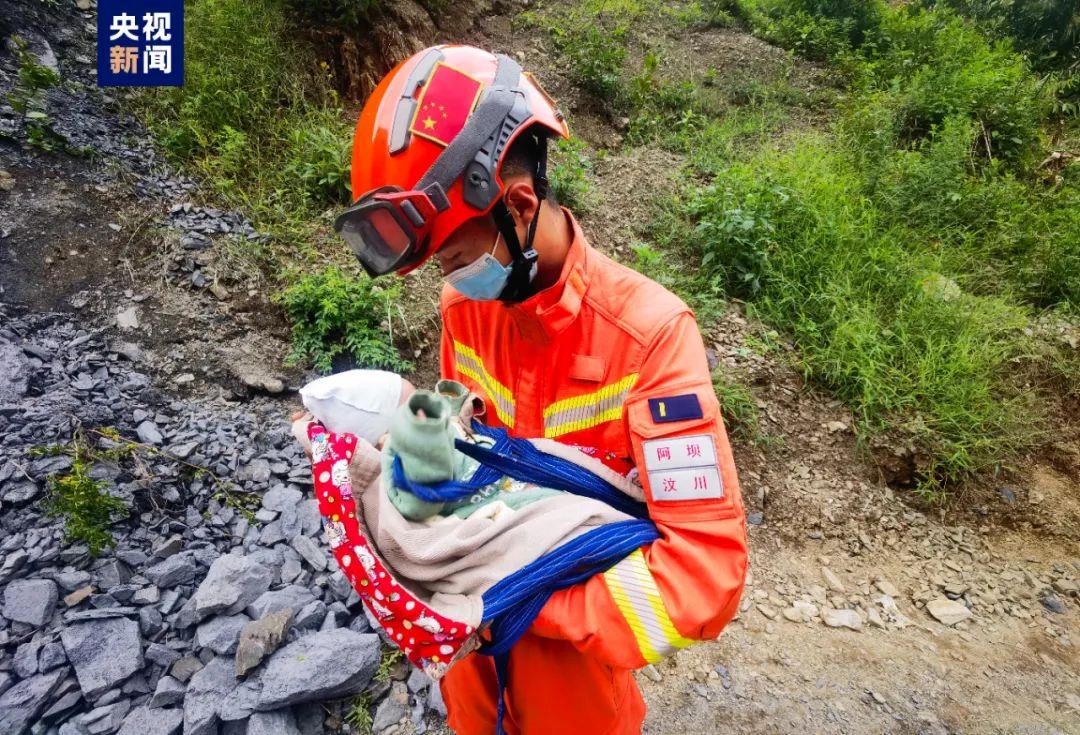出師表翻譯一句一譯簡單-出師表翻譯一下
前段時間,王洛勇用英文演繹的《出師表》讓大家直呼驚艷。
《出師表》是我們中學時代語文課本上的重點文章,我相信很多人都背誦過全文。文中所展現的諸葛亮鞠躬盡瘁、死而后已的精神更是流傳千古,令人感動和敬仰。
這一次英文版《出師表》的出爐,給人耳目一新的感覺。很多網友說,即使不懂英語,也十分享受王洛勇的聲情并茂和抑揚頓挫,還有人說這是一種“耳膜馬殺雞”。

讓這一次英文版《出師表》大火特火的重要原因,一方面是王洛勇老師高超的語音語調和感情運用;另外一方面,英文翻譯很出彩,英語表達精準到位又簡潔易懂,十分值得我們學習。
在具體分析這篇《出師表》英文翻譯前,我們先熟悉一下時代背景:
公元221年,劉備稱帝,諸葛亮為丞相。223年,劉備病死,將劉禪托付給諸葛亮。諸葛亮推行了一系列政治和經濟措施,使蜀漢境內呈現興旺景象。為了實現全國統一,諸葛亮在平息南方叛亂之后,于227年決定北上伐魏,奪取涼州,臨行之前上疏后主,以懇切委婉的言辭勸勉后主要廣開言路、嚴明賞罰、親賢遠佞,以興復漢室;同時也表達自己以身許國,忠貞不二的思想。
下面是對于《出師表》英語翻譯的全盤分析,供大家參考學習:
《出師表》
諸葛亮
臣亮言
Permit me to observe:
【解析】
1)“臣亮言”:即“請允許我說”,permit me to observe(permit sb. to do sth.:允許某人做某事)
2)注意observe一詞,除了“觀察”之意,還有一層含義--to say or write what you have noticed about a situation(對于某個局勢的評論)
先帝創業未半而中道崩殂
the late emperor was taken from us before he could finish his life's work, the restoration of the Han.
【解析】
1)“先帝”:即“已故的帝王”(指劉備),the late emperor(late:adj. 已故的)
2)“中道崩殂”:即“從我們身邊被奪走”,was taken from us(很好地把“人情味”體現出來了)
3)“創業未半”:即“在完成他的工作之前”,before he could finish his life’s work
4)the restoration of the Han:“恢復漢室”,這個部分原文中沒有,屬于對前面“work”的必要解釋說明,語法上叫做“同位語”。
今天下三分,益州疲敝,此誠危急存亡之秋也。
Today,the empire is still divided in three, and our very survival is threatened.
【解析】
1)“今天下三分”:即“整個帝國分裂為三個部分”,the empire is still divided in three
2)“益州疲敝”:為了整個譯文的易懂性,此部分并未在英文中出現。
3)“此誠危急存亡之秋也”:即“我們的生存遭遇危機(被威脅)”,our survival is threatened.
然侍衛之臣不懈于內,忠志之士忘身于外者
Yet still the officials at court and the soldiers throughout the realm remain loyal to you, your majesty.
【解析】
1)“侍衛之臣”:即“朝中文官”,the officials at court
2)“忠志之士”:即“在外打拼的武將和士兵”,soldiers throughout the realm
3)“不屑于內”和“忘身于外”:意譯為“對你保持忠誠”,remain loyal to you
4)your majesty:“陛下”,對于主公、皇帝的尊稱
蓋追先帝之殊遇,欲報之于陛下也。
Because they remember the late emperor, all of them, and they wish to repay his kindness in service to you.
【解析】
1)“蓋追先帝之殊遇”:即“大概(是因為)追念先帝的特殊待遇”,簡化譯為because they remember the late emperor
2)“欲報之于陛下也”:即“他們想要在服務于你的過程中,報答這份恩情”:they wish to repay his kindness in service to you(*repay:報答;*his kindness:先帝之恩)
誠宜開張圣聽,以光先帝遺德,恢弘志士之氣
This is the moment to extend your divine influence, to honour the memory of the late emperor and strengthen the morale of your officers.
【解析】
1)“誠宜開張圣聽”:即“確實應該廣泛地聽取群臣的意見”, This is the moment to extend your divine influence(*extend your divine influence:“擴大你神圣的影響力”,屬于意譯了。)
2)“以光先帝遺德”:即“發揚光大先帝留下的美德”,honour the memory of the late emperor(*honour the memory of…:紀念)
3)“恢弘志士之氣”:即“增強官員、將士們的士氣”,strengthen the morale of your officers(*the morale:士氣、精氣神)
不宜妄自菲薄,引喻失義,以塞忠諫之路也。
It is not the time to listen to bad advice, or close your ears to the suggestions of loyal men.
【解析】
1)“不宜妄自菲薄”:即“不應該隨隨便便地看輕自己”,It is not the time to listen to bad advice(說實話,這里沒翻出來。可以這樣翻 it is not the time to look down upon yourself)
2)“引喻失義”:即“言談中稱引譬喻不合大義(說話不恰當)”,這句在英文中也沒有體現,可以處理成 speak improperly
3“以塞忠諫之路也”:即“拒絕聽取忠臣的建議”,close your ears to the suggestions of loyal men
親賢臣,遠小人,此先漢所以興隆也。
The emperors of the Western Han chose their courtiers wisely, and their dynasty flourished.
【解析】
1)“親賢臣,遠小人”:即“(西漢皇帝)在臣子的選擇上十分明智”,The emperors of the Western Han chose their courtiers wisely(屬于意譯)
2)“此先漢所以興隆也”:and their dynasty flourished.(*flourish:vi. 興旺)
親小人,遠賢臣,此后漢所以傾頹也。
The emperors of the Eastern Han chose poorly, and they doomed the empire to ruin.
【解析】
1)“親小人,遠賢臣”:即“東漢的皇帝們在臣子的選擇上很糟糕”,The emperors of the Eastern Han chose poorly,
2)“此后漢所以傾頹也”:即“他們讓帝國遭受厄運”,they doomed the empire to ruin(*doom…to…:使…遭受厄運;*ruin:vi. 毀滅、崩塌)
先帝在時,每與臣論此事,未嘗不嘆息痛恨于桓、靈也。
Whenever the late Emperor discussed this problem with me, he lamented the failings of Emperors Huan and Ling.
【解析】
1)“先帝在時,每與臣論此事”:即“每當先帝跟我談論這個問題時”,Whenever the late Emperor discussed this problem with me,
2)“未嘗不嘆息痛恨于桓、靈也”:即“他總是哀嘆于桓靈二帝的失敗”,he lamented the failings of Emperors Huan and Ling(*lament:vt. 哀嘆于…)
臣本布衣,躬耕于南陽,茍全性命于亂世,不求聞達于諸侯。
I began as a common man, farming in my fields in Nanyang, doing what I could to survive in an age of chaos. I never had any interest in making a name for myself as a noble.
【解析】
1)“臣本布衣”:即“我一開始只是一個普通人”,I began as a common man
2)“躬耕于南陽”:即“在南陽種田”,farming in my fields in Nanyang
3)“茍全性命于亂世”:即“盡我所能,在亂世中存活下來”,doing what I could to survive in an age of chaos.(*do what one could to:竭盡所能做某事;*an age of chaos:亂世)
4)“不求聞達于諸侯”:即“對于當官出名一事,我也毫無興趣”,I never had any interest in making a name for myself as a noble.(*make a name:成名)
先帝不以臣卑鄙,猥自枉屈,三顧臣于草廬之中,咨臣以當世之事。
The late Emperor was not ashamed to visit my cottage and seek my advice.
【解析】
1)“先帝不以臣卑鄙,猥自枉屈”:即“先帝不覺得難為情” (“不以臣卑鄙,猥自枉屈”可以合并翻譯),the late Emperor was not shamed to…
2)“三顧臣于草廬之中,咨臣以當世之事”:即“拜訪我的小屋,尋求我的意見”,visit my cottage and seek my advice(數字“三”并無體現)
由是感激,遂許先帝以驅馳。
Grateful for his regards, I responded to his appeal and threw myself into his service.
【解析】
1)“由是感激”:即“由于感激他的對我的尊重”,grateful for his regards(*該部分作原因狀語,*grateful for:對…表示感激;*regards:尊重)
2)“遂許先帝以驅馳”:“于是答應先帝竭盡全力奔走效勞”,I responded to his appeal and threw myself into his service.(*appeal:請求)
先帝知臣謹慎,故臨崩寄臣以大事也。
The late Emperor always appreciated my caution and, in his final days, entrusted me with his cause.
【解析】
1)“先帝知臣謹慎”:即“先帝懂我的謹慎”,The late Emperor always appreciated my caution(*appreciate:欣賞、領會;*caution:謹慎)
2)“故臨崩寄臣以大事也”:即“在他最后的日子,委托我一件大事”,in his final days, entrusted me with his cause(*cause:事業)
受命以來,夙夜憂嘆,恐托付不效,以傷先帝之明。
Since that moment, I have been tormented day and night by the fear that I might let him down.
【解析】
1)“受命以來”:即“自從那一刻”,since that moment(術語意譯)
2)“夙夜憂嘆”:即“我日日夜夜遭受到極大的痛苦”,I have been tormented day and night(*torment:拷打、使…感到痛苦)
3)“恐托付不效,以傷先帝之明”:可以合并理解為“害怕讓先帝失望”,by the fear that I might let him down.(*the fear也是前句torment的施動方。)
故五月渡瀘,深入不毛。
That is why I crossed the Lu river at the height of summer, and entered the wastelands beyond.
【解析】
1)“故五月渡瀘”:即“所以我在盛夏之際渡過瀘水”,That is why I crossed the Lu river at the height of summer
2)“深入不毛”:即“進入到遙遠的荒地”,entered the wastelands beyond.
今南方已定,兵甲已足。
Now the south has been subdued, and our forces are fully armed.
【解析】
1)“今南方已定”:即“現在南方已經被平定”,Now the south has been subdued(*subdue:壓制、平定)
2)“兵甲已足”:即“我們的力量已經裝備完全”,our forces are fully armed.(*arm可作動詞,表示“裝備”)
當獎率三軍,北定中原,庶竭駑鈍,攘除奸兇,興復漢室,還于舊都。
I should lead our soldiers to conquer the northern heartland and attempt to remove the hateful traitors, restore the house of Han, and return it to the former capital.
【解析】
1)“當獎率三軍,北定中原”:即“獎勵并率領我們的將士征服中原”,I should lead our soldiers to conquer the northern heartland,(*中原:northern heartland,即“北部中心地帶”;“獎”并無翻譯出來,可以用reward)
2)“庶竭駑鈍,攘除奸兇”:“盡力拔出可恨的叛徒”,attempt to remove the hateful traitors(*庶竭駑鈍:竭盡我的全力,attempt to)
3)“興復漢室”:即“恢復漢朝的家業”,restore the house of Han(*house在此為比喻用法)
4)“還于舊都”:即“把漢室歸還到以前的都城”,return it to the former capital
此臣所以報先帝 而忠陛下之職分也。
This is the way I mean to honor my debt to the late Emperor and fulfill my duty to you.
【解析】
本句的意思為“所以我打算報答先帝,同時履行我對你的責任”,This is the way I mean to honor my debt to the late Emperor and fulfill my duty to you.(*mean to:決定、打算;honor one’s debt to:報答;*fulfill one’s duty:履行某人的職責)
愿陛下托臣以討賊興復之效。
My only desire is to be permitted to drive out the traitors and restore the Han.
【解析】
本句意思為“愿陛下把驅逐叛徒、興復漢室的機會交給我”,My only desire is to be permitted to drive out the traitors and restore the Han.(*be permitted to:被允許做某事;*drive out:驅逐)
不效,則治臣之罪,以告先帝之靈。
If I should let you down, punish my offense and report it to the spirit of the late Emperor.
【解析】
1)“不效”:即“如果做不出成效”,也就是“如果我讓你失望了”,if I should let you down(if I should do…:對將來情況的一種假設,屬于虛擬語氣)
2)“則治臣之罪”:即“懲罰我的過錯”,punish my offense
3)“以告先帝之靈”:即“把我的過錯匯報給先帝在天之靈”,report it to the spirit of the late Emperor
陛下亦宜自謀,以咨諏善道,察納雅言,深追先帝遺詔。
Your Majesty, consider your course of action carefully. Seek out good advice, and never forget the last words of the late Emperor.
【解析】
1)“陛下亦宜自謀”:即“請仔細考慮你的做法”,consider your course of action carefully(*course of action:做法、行動步驟)
2)“以咨諏善道,察納雅言”:合并理解為“尋求好的意見”,Seek out good advice
3)“深追先帝遺詔”:即“永遠不要忘記先帝的臨終之言”,never forget the last words of the late Emperor.
臣不勝感激 今當遠離。
I depart now on a long expedition, and I will be forever grateful if you heed my advice.
【解析】
1)“臣不勝感激”:即“(如果你重視我的意見)我會永遠感激”,I will be forever grateful if you heed my advice.
2)“今當遠離”:即“今日我要開啟一段長途旅程”:I depart now on a long expedition(*depart:離開、出發、啟程)
臨表涕零,不知所言。
Blinded by my own tears, I know not what I write.
【解析】
1)“臨表涕零”:即“面對這份奏表,我不禁落淚”,Blinded by my own tears(*“哭瞎”。。。譯者也是入戲太深,贊一個)
2)“不知所言”:即“不知道我寫了什么”,I know not what I write(比I don’t know what I write更書面化。*當牛人寫了一篇邏輯清晰、文筆出眾、感人至深的文章后,說“不知道自己寫了什么”,讓其他人情何以堪。。。)
我們發現,其實文言文的翻譯,也可以很簡單。這篇英文翻譯就是一個很好的案例。要想做到這一點,有以下三個步驟:
① 充分理解原文;
② 用相對口語化的方式對原文進行詮釋;
③ 用相應地道的英文詞匯、短語、句型組織語言。
如果說汽車是現代工業制造上的明珠,那么翻譯實際上是英語學習上的明珠,好的翻譯能力是詞匯量、語法功底、閱讀理解能力、寫作能力的集中體現。
翻譯是慢功夫,要在不斷實踐中逐步積累。我愿以自己多年的實戰經驗,帶著大家提升理解水平、翻譯水平、寫作水平。
來源︱侃英語





